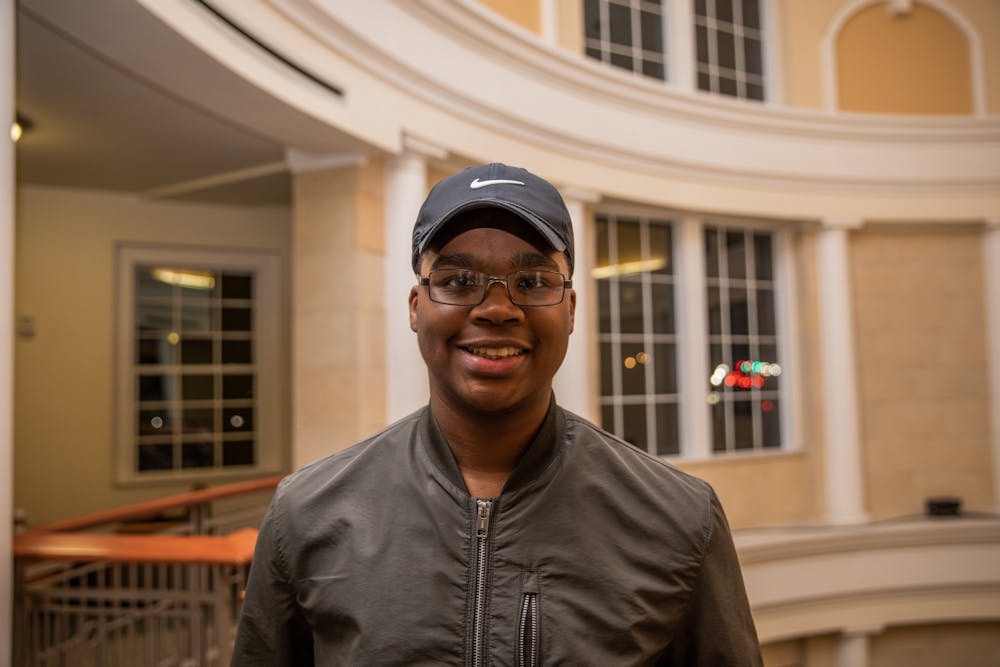The distant wallows of anguish echo in the distance, only to be drowned out by the chilling sounds of exploding tear gas canisters and rampant gun fire that reverberates around the city block.
A young black youth, shot by a rubber bullet, looks down toward his palms to see them dripping with blood. A timid glance up reveals a raging fire engulfing a car a few yards down as well as an ominous barrage of National Guard servicemen, who have set up a garrison in preparation for the next wave of vocal dissidents.
The hazed portrait is out of a battle zone, comprised of a myriad of senses emanating from each and every direction. The stinging sensation begins to kick in, minimizing the focal detail of the ensuing frenzy, the boy sits amid. The billowing white mist only perpetuates a widespread feeling of anxiety and uncoordinated anger, evident by the ransacking of a nearby shop.
The barrage begins to move in now, gaining closer and closer with each coordinated march. The youth, now feeling light-headed, can only perceive the agitated grasp of a fellow protester hauling him to safety, leaving only a faint stream of blood soaked into the cracked tarmac.
These are the scenes that have gripped the nation these past days. The recent and blatant murder of Minneapolis native, George Floyd, seems to be the long anticipated catalyst to set America into the unprecedented environment that is currently unraveling before our eyes.
It comes at a time that has already been marred by the unforeseen devastation of the COVID-19 pandemic, which has taken the lives of over 100,000 Americans and resulted in the loss of millions of civilian jobs.
At a desperate time like this, it's clear how the nation the nation has faltered. Now more than ever, it’s imperative that leadership, especially from the top, presents itself in a manner that not only brings peace, but works with the people to effectively remedy the very ills that are present.
Donald Trump hasn’t been that figure, and it shouldn’t be up for debate. In addition to declaring protesters and rioters as “thugs,” which is questionable as the Charlottesville rioters were ‘very fine people’ in his words. He has made remarks encouraging the shooting of American civilians. He even quoted a phrase first used by a notoriously racist 1960s Miami police chief that has gone to the extreme of evoking the 1807 Military Act, which permits the use of the military on U.S. soil.
He also received criticism for retreating to the presidential bunker following disparaging comments labeling certain American governors as “weak.”
The scenes in the streets of America strike parallels to the environment of a previous era in U.S. history, when injustices carried out against people of color were the norm. From coast to coast, angry citizens have taken to the streets to highlight the blatant misuse of power by police, revealing a raw and ugly side of those who are supposed to uphold the principles of society.
Numerous clips of vile police brutality have swamped media platforms, capturing the despicable nature of select groups of cops and servicemen against protesters engaging in their right to gather.
The chilling nature of these incidents strikes to the core, such as abhorrent aggressiveness via rubber bullets to the face, excess tear gas and pepper spray and scenes of some officers unleashing spouts of instability and rage.
Being aware of the present turmoil that has unraveled in some of the nation's biggest cities brings an entirely new perspective to the “America'' that’s perceived around the world and even to the citizens who live here. It’s not really fathomable to stomach the events that brought America to such a formidable position.
The outcry for nationwide change has been at the forefront of many of the riots and protests, ushering a large upheaval of support and encouragement, which has never been this widely seen before.
The #BlackLivesMatter movement has never been stronger, amassing support from large businesses and notable figures from many backgrounds. Support has even gone global, with a handful of protests and movements sprouting up in Europe, Australia, New Zealand, and even Syria. Petitions and funds have been plentiful, with millions of dollars in donations being directed toward the progression of black communities across the country.
The idea present here has one common factor in mind: America has a problem regarding race, and, quite literally, the entire world is making note of it, even America itself. How much longer must these cries be echoed? Change is upon us and for the taking, but only a select few can effectively determine whether it will be set in stone.
The rhetoric of the #BlackLivesMatter movement resides right in its name. A group of people shouldn’t feel that their very lives are at risk the minute they’re pulled over. They shouldn’t have to be taught how to deal with the police at the age of 12. They shouldn't have to to convene for the right to live in a nation of which they are citizens.
Rest in peace to George Floyd and all of the other lives that were tragically lost before his. The importance of Floyd’s life is one that will hopefully set us on a trajectory to remedy a bleeding America.
Christopher Lawrence-White is a rising sophomore studying mechanical engineering at Ohio University. Please note that the views and opinions of the columnists do not reflect those of The Post. Want to talk more about it? Let Christopher know by emailing him at cl825718@ohio.edu.






